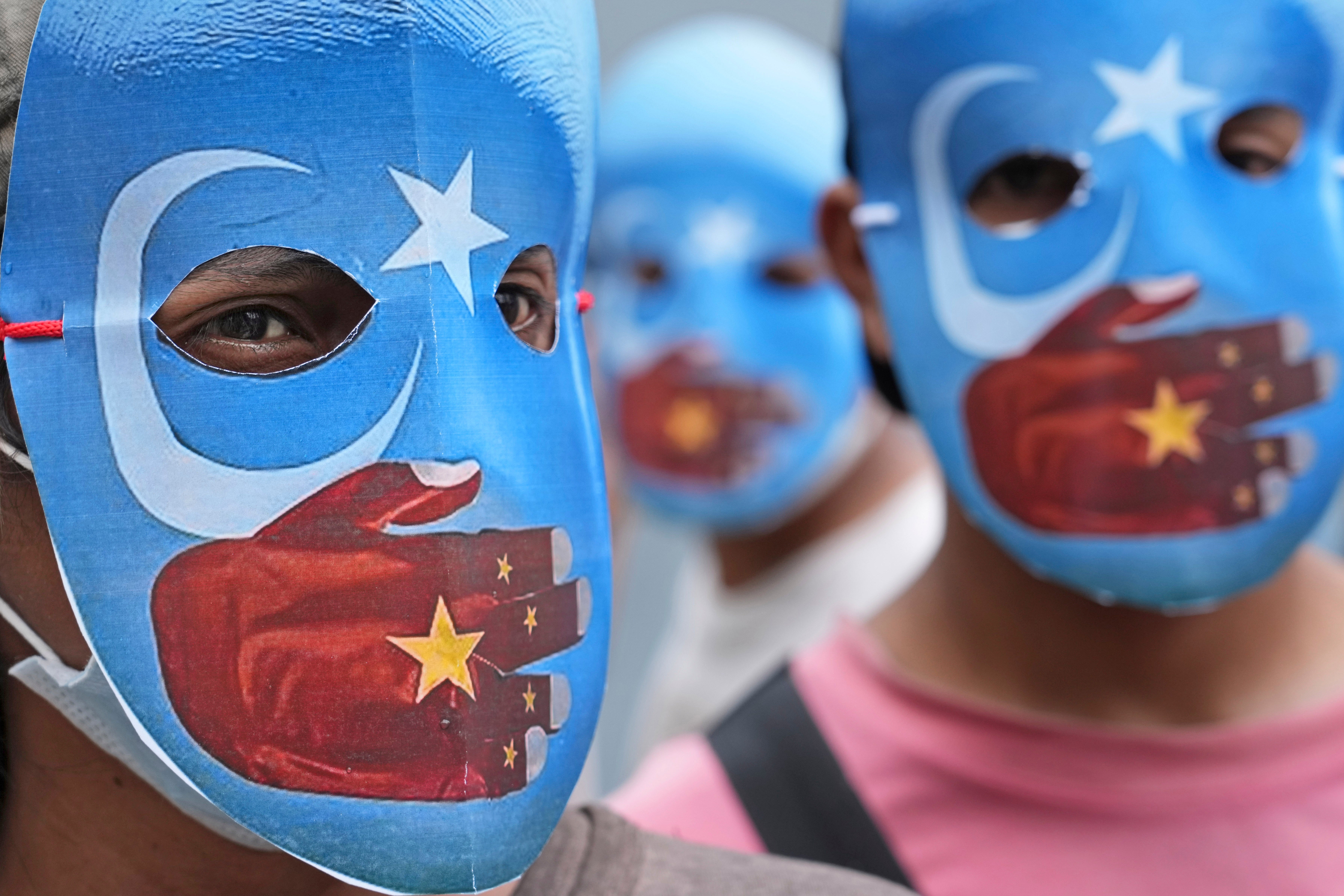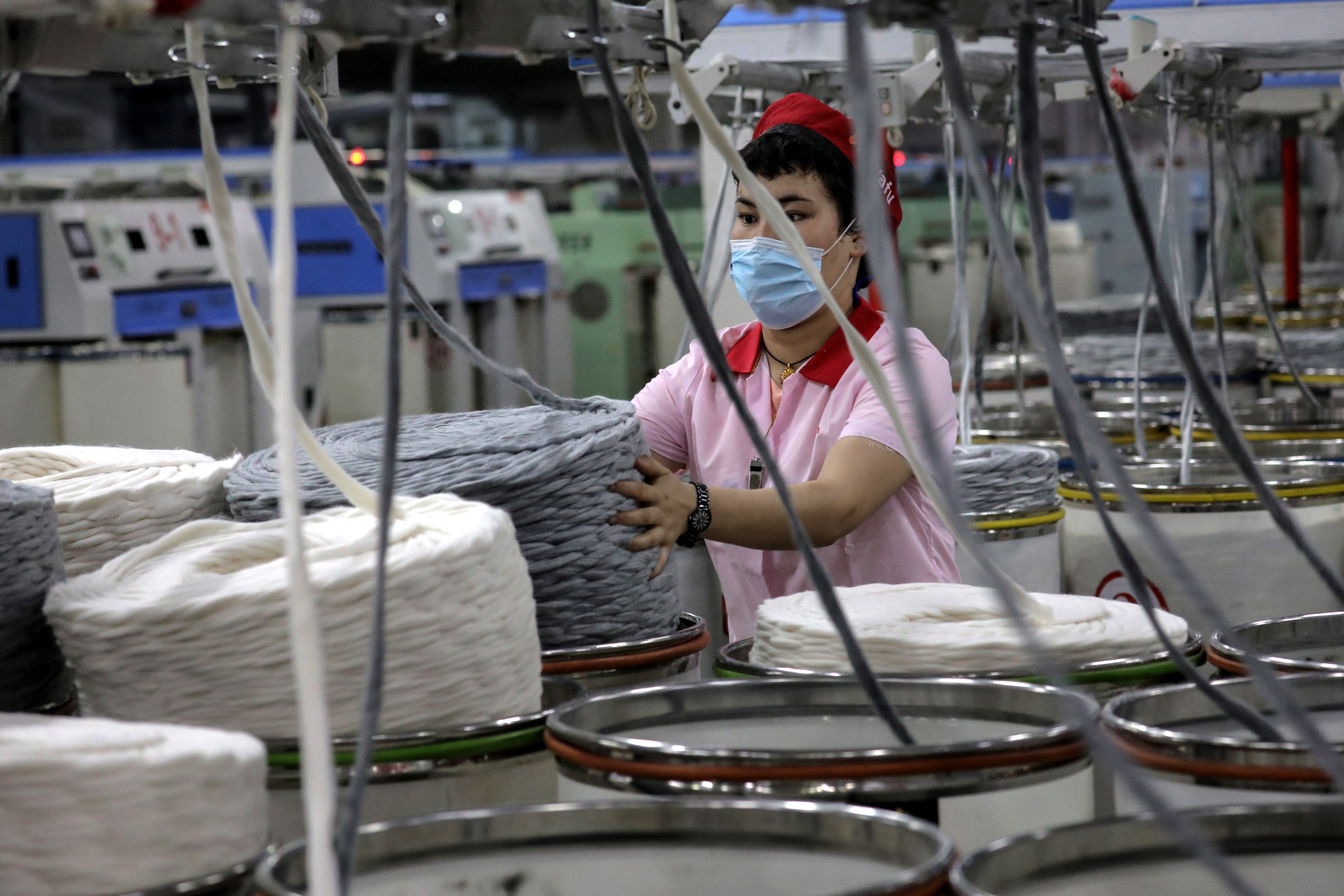International alliance of western MPs calls for China blacklists over Uyghur ‘atrocities’
Demands came following reports that HSBC holds shares in Chinese firm linked to abuse

Your support helps us to tell the story
From reproductive rights to climate change to Big Tech, The Independent is on the ground when the story is developing. Whether it's investigating the financials of Elon Musk's pro-Trump PAC or producing our latest documentary, 'The A Word', which shines a light on the American women fighting for reproductive rights, we know how important it is to parse out the facts from the messaging.
At such a critical moment in US history, we need reporters on the ground. Your donation allows us to keep sending journalists to speak to both sides of the story.
The Independent is trusted by Americans across the entire political spectrum. And unlike many other quality news outlets, we choose not to lock Americans out of our reporting and analysis with paywalls. We believe quality journalism should be available to everyone, paid for by those who can afford it.
Your support makes all the difference.A group of 35 legislators, representing over 10 countries and blocs including the EU, UK, India and Australia, have called on their governments to draw up a blacklist of entities involved in “perpetrating atrocities in the Uyghur region” of China.
The parliamentarians demanded a blacklist similar to the US Commerce Department’s Entity List, which identifies bodies complicit in human rights violations and abuses of ethnic Uyghur Muslims in the Xinjiang region of China.
The politicians said in a statement that their intention was to block investors from funding the firms that are involved in abuses of the ethnic minority.
The coordinated move by representatives from several European Union nations and others like Canada and the UK is being led by the Inter-Parliamentary Alliance on China (IPAC) - an international cross-party network of some 200 legislators focused on relations with China.
“We cannot ignore the role that big banks play in financing the abuses taking place in Xinjiang. If they are knowingly investing in firms perpetrating forced labour and other human rights abuses, then it is right that they should be held to account,” said Reinhard Bütikofer, a German Green MEP and co-chair of IPAC.
“We are calling on the [European] Commission to urgently bring forward measures to not only prevent goods made with forced labour from entering our markets, but also to prevent our banks from investing in them.”
The IPAC said it was making the calls following reports that London-headquartered HSBC has held shares worth £2.2 million in a subsidiary of the Xinjiang Production and Construction Corps (XPCC), an entity sanctioned by the US over alleged involvement in forced labour.
“IPAC members Senator Marco Rubio and Congresswoman Young Kim have since called for HSBC to be investigated for potential violations of US sanctions on the XPCC through this investment,” the alliance said in a press release.
A spokesperson for HSBC told The Independent that the shares in question were valued at “about £22,000, not £2.2 million as reported”. And the bank denied making direct investments in XPCC subsidiary Xinjiang Tianye, a plastics manufacturer. The bank said HSBC was holding a client’s shares, which were traded through the Shanghai-Hong Kong Stock Connect investment channel.
“HSBC has not invested in Xinjiang Tianye,” HSBC said. “Many firms provide custodial services for non-US customers who want to trade in this or related stocks. This does not contravene any sanctions.”

The UK’s biggest bank was last year condemned by foreign secretary Dominic Raab after it said it would follow the sweeping new national security law in Hong Kong, brought in by Beijing to curtail a lengthy period of protests and which has wide-ranging implications for freedom of speech in the city.
He said that the rights of people in Hong Kong should not be “sacrificed on the altar of bankers’ bonuses”.
China has been long accused of systemically oppressing Uyghurs, an ethnic Muslim minority in the north-western region of Xinjiang.
The UN has previously expressed concerns about the mass incarceration of more than a million Uyghurs in detention centres in the region, as well as other alleged abuses including forced labour, torture and sexual assault.
China has denied the allegations, saying the centres are providing voluntary vocational training as part of a programme to prevent separatist violence.
“As the Uyghur people continue to suffer intolerable abuse at the hands of the Chinese government – which a growing number of independent legal experts believe to constitute genocide and crimes against humanity – we cannot allow our financial firms to bankroll these atrocities,” Helena Kennedy, a member of the House of Lords, and former Tory leader Iain Duncan Smith wrote in a letter signed by the MPs.
The two were among the British politicians who were sanctioned by Beijing last year.
The letter added that the “worst abusers of human rights globally cannot be allowed unfettered access to lucrative financial support internationally”.
This article was amended on 28 January 2022 to include HSBC’s position that the value of the shares was £22,000, and not £2.2 million.
Join our commenting forum
Join thought-provoking conversations, follow other Independent readers and see their replies
Comments